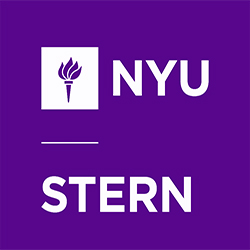 Erica Hartsfield is a Senior Associate Director of MBA Admissions and has worked at NYU Stern for over 5 years on both the events marketing and digital marketing teams. Outside of work, Erica is an avid Chicago sports fan (go Bears!), puzzle enthusiast, history buff, and MPA candidate at NYU Wagner.
Erica Hartsfield is a Senior Associate Director of MBA Admissions and has worked at NYU Stern for over 5 years on both the events marketing and digital marketing teams. Outside of work, Erica is an avid Chicago sports fan (go Bears!), puzzle enthusiast, history buff, and MPA candidate at NYU Wagner.“Who should I ask to write my letters of recommendation?” is a question we get often from prospective students. On one hand, the answer seems pretty straightforward: ask a current or previous supervisor. In practice, the answer is a bit more complex. Letters of Recommendation (LORs), or EQ Endorsements as we call them at Stern, are one of the few external inputs that candidates include in their application. But why do we ask for them? And who should you actually ask to write a recommendation?
The Purpose of Letters of Recommendation
- Support your candidacy.
- Bring to life the story in your application through the viewpoint of someone who knows you well.
NYU Stern’s EQ Endorsements
At Stern, our letters of recommendation are called EQ Endorsements. Our EQ Endorsements are similar to a common LOR, but we ask your endorser to provide a specific example of your EQ, or emotional intelligence. Our community values EQ, and this is an opportunity to hear how candidates embody this core pillar of our community through the experience of their endorser.
Picking Endorsers
You should be selective when deciding who to ask for an EQ Endorsement. At Stern, we encourage at least one professional EQ Endorsement from a current or recent manager. The second endorsement is up to you ( you should avoid anyone who may be biased like family members or significant others). Most importantly, select endorsers who know you and can speak to your contributions and strengths. We can usually tell if you haven’t worked closely with an endorser, so you won’t get extra points for including a letter from an executive just because of their title.
Managing the “Ask”
Once you’ve identified who you want to ask, think about how you’ll manage this process. Here are some tips for ‘managing the ask’:
- Reach out early. Make a list of people you want to reach out to for EQ Endorsements, and ensure you give them enough time to write a good endorsement.
- Don’t tell your recommender what to write about you. Remember, endorsements should be external insight that supports your application. Instead, have a conversation with your endorser to remind them of your accomplishments and share context about why you want to pursue your MBA.
- Follow up. Stay in touch with your endorsers and follow up as needed. People often miss application deadlines because they are missing an EQ endorsement.
- Send a thank you note! It seems obvious, but it’s an important step. Your endorsers have taken time to advocate for you in this journey, so remember to thank them for their support.
Ultimately, EQ endorsements build on the story you’re telling in your application. If your voice in your application says “this is who I am and this is what I’ve done”, your endorsements should say “that’s true, and here’s how”.
